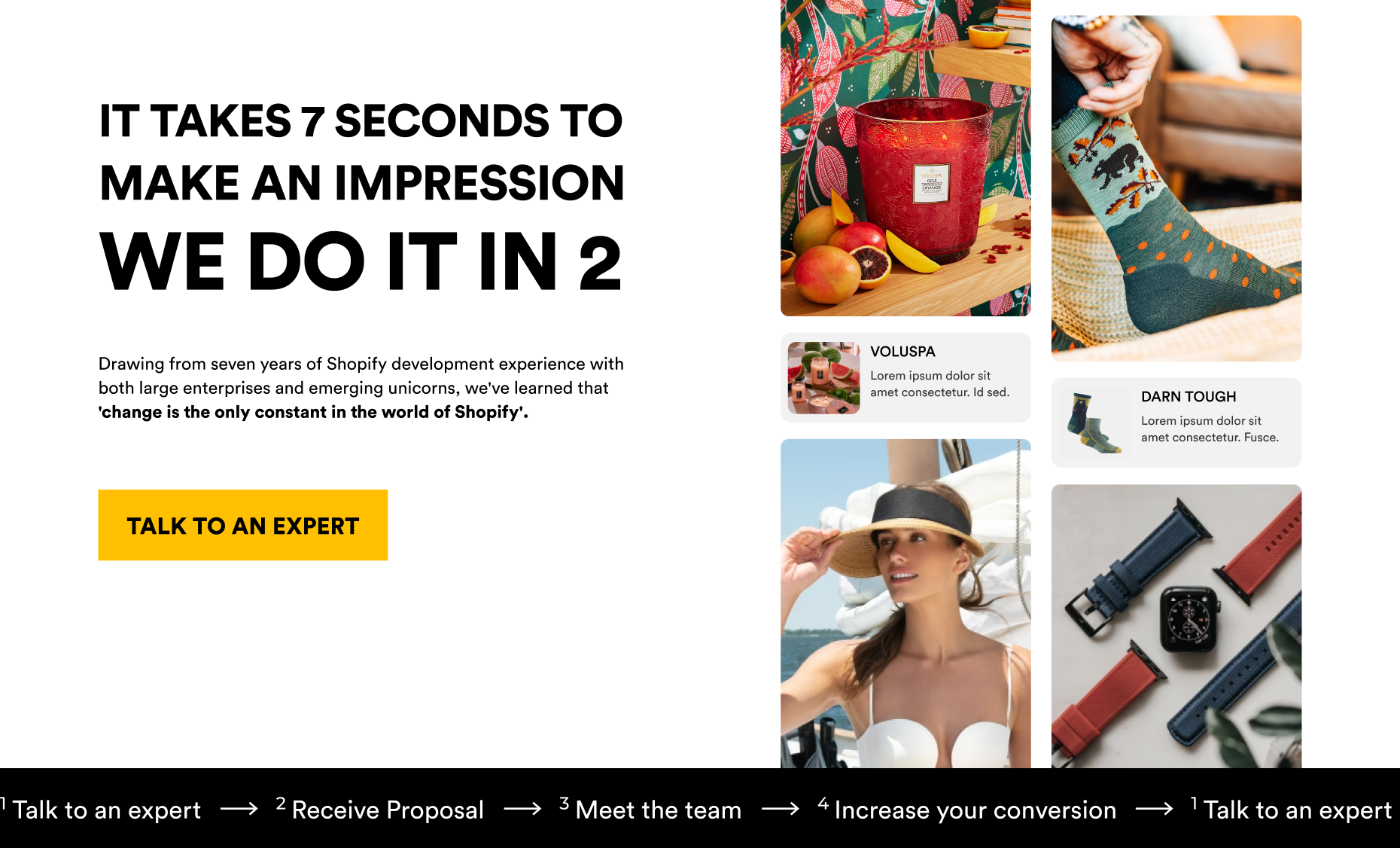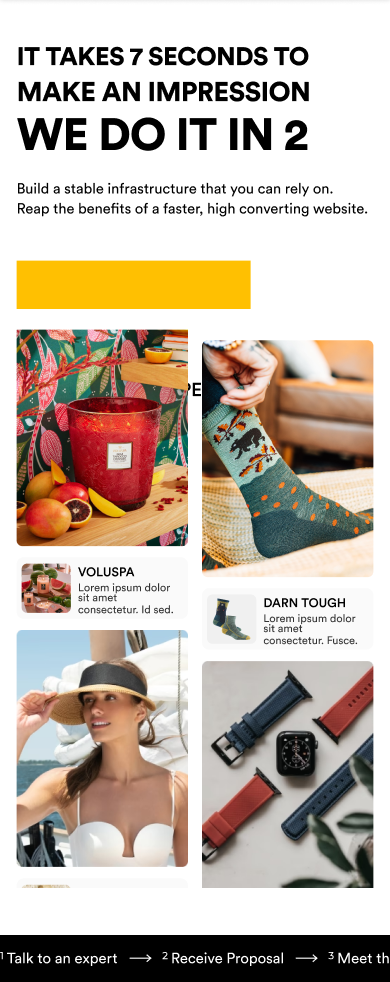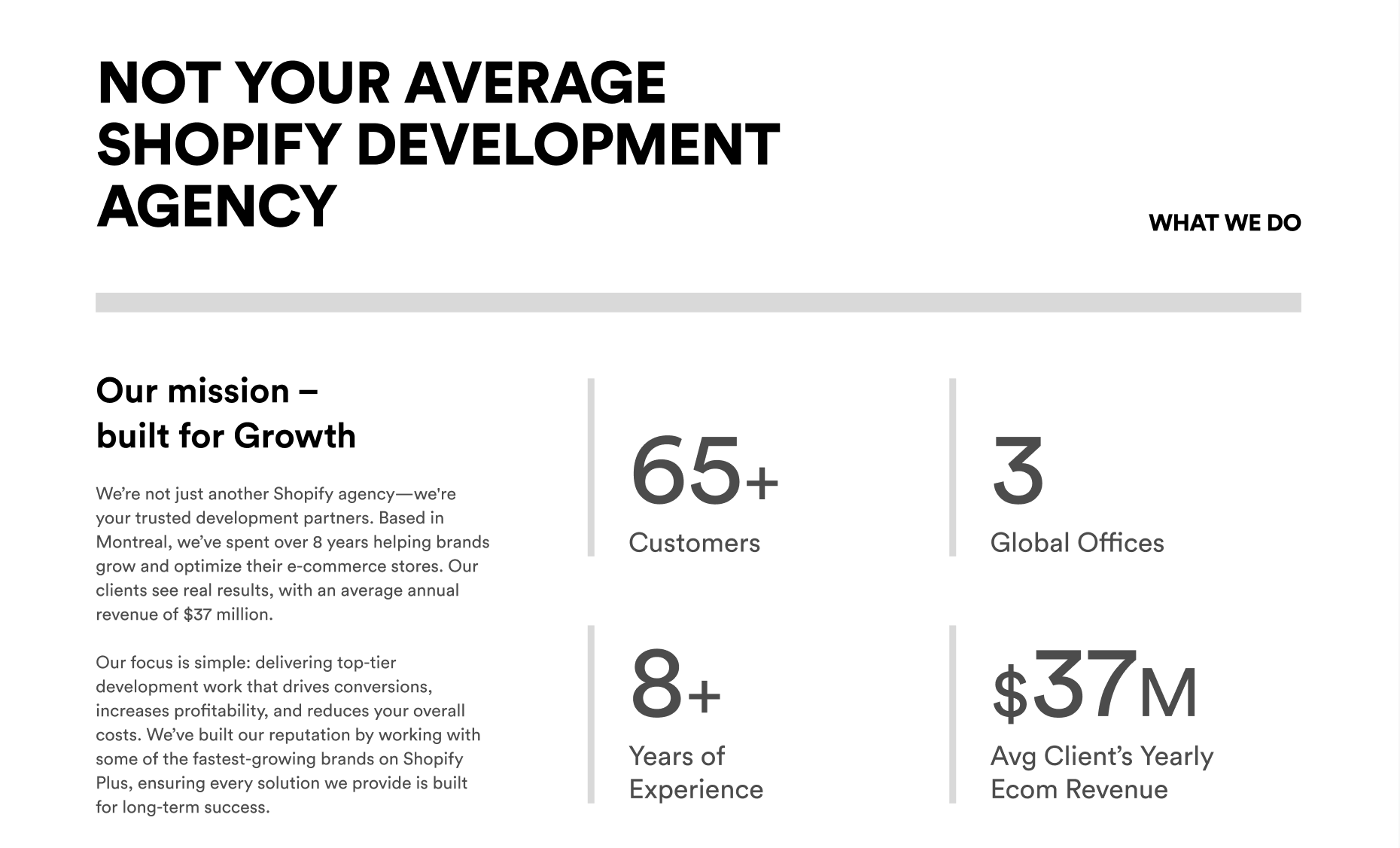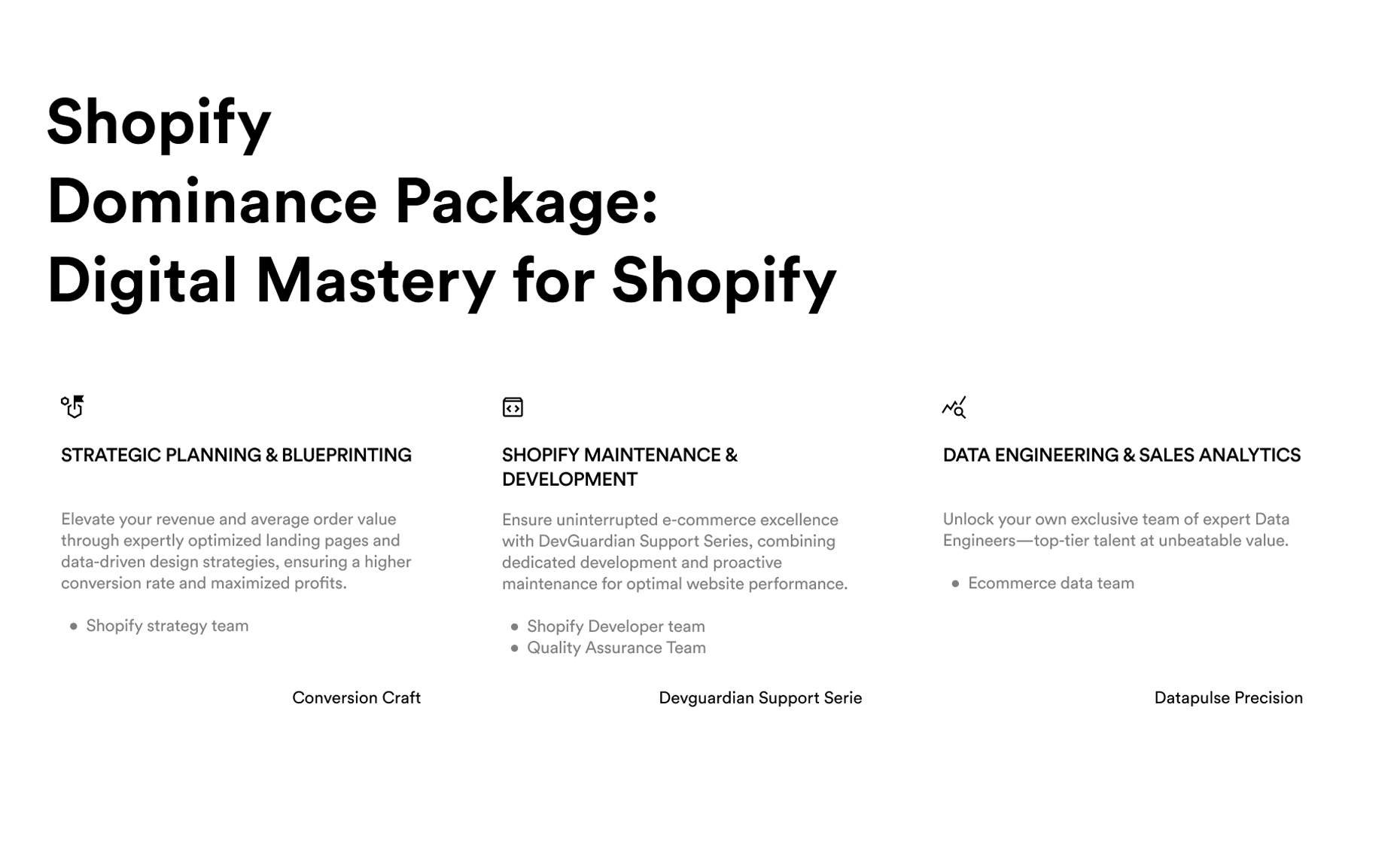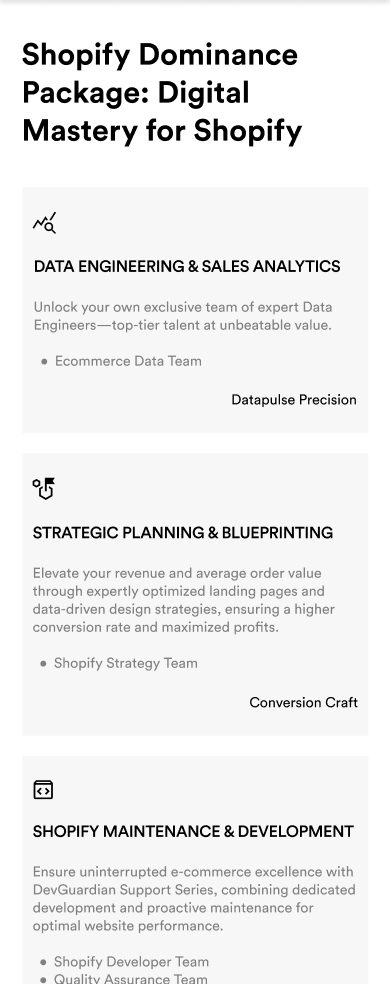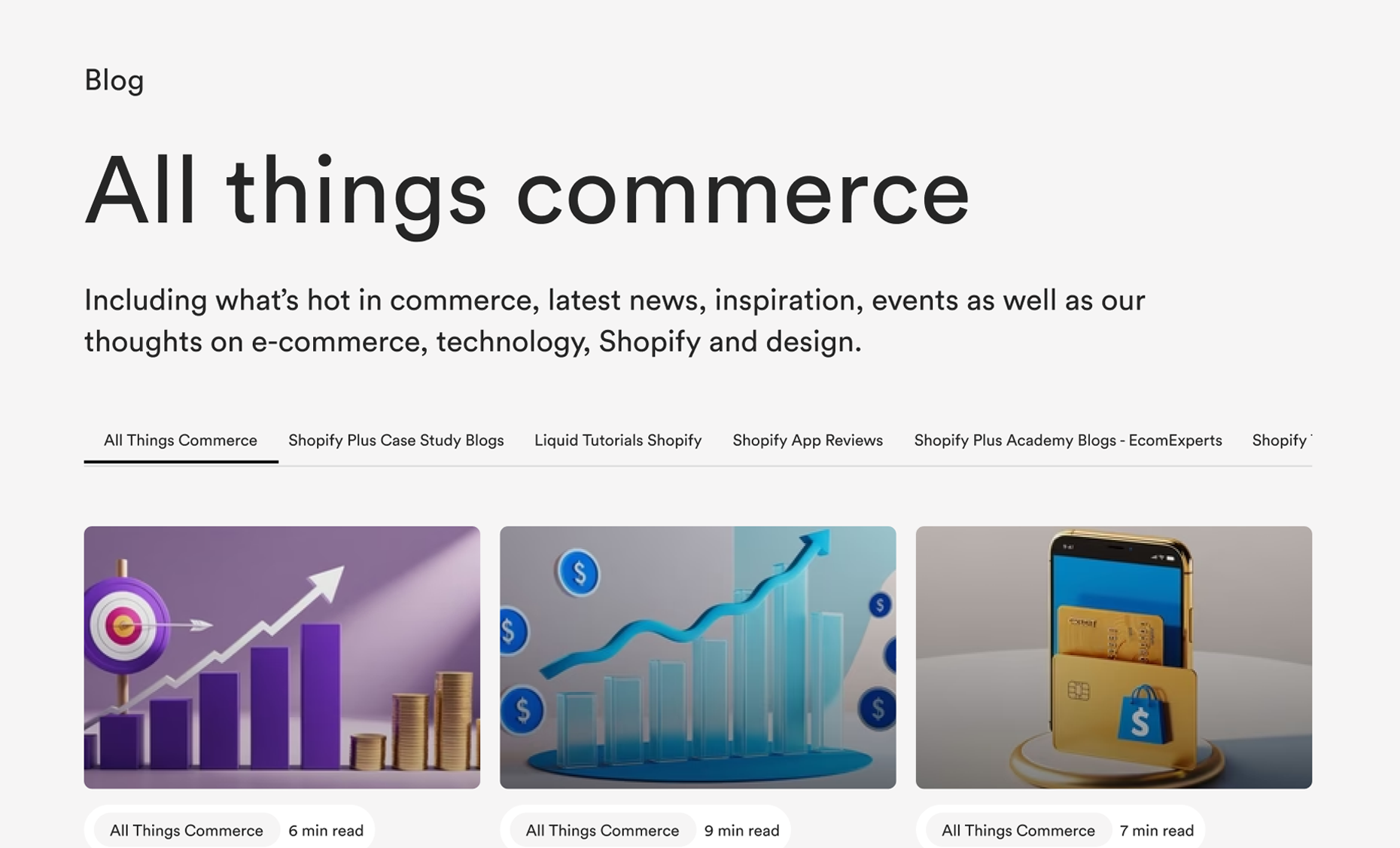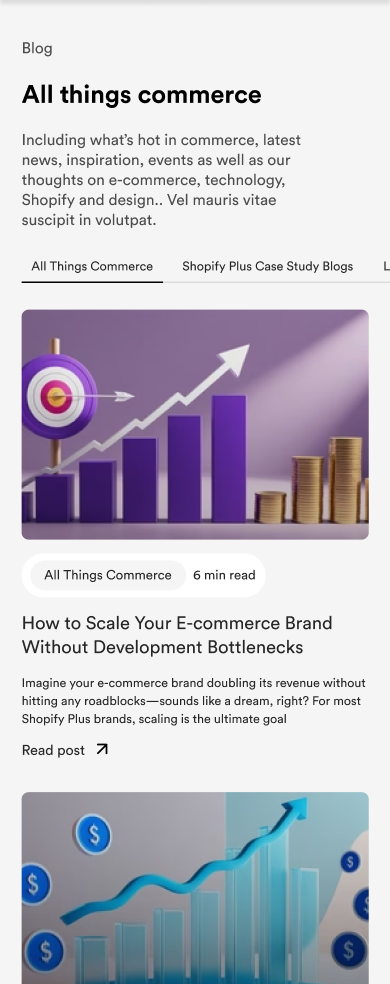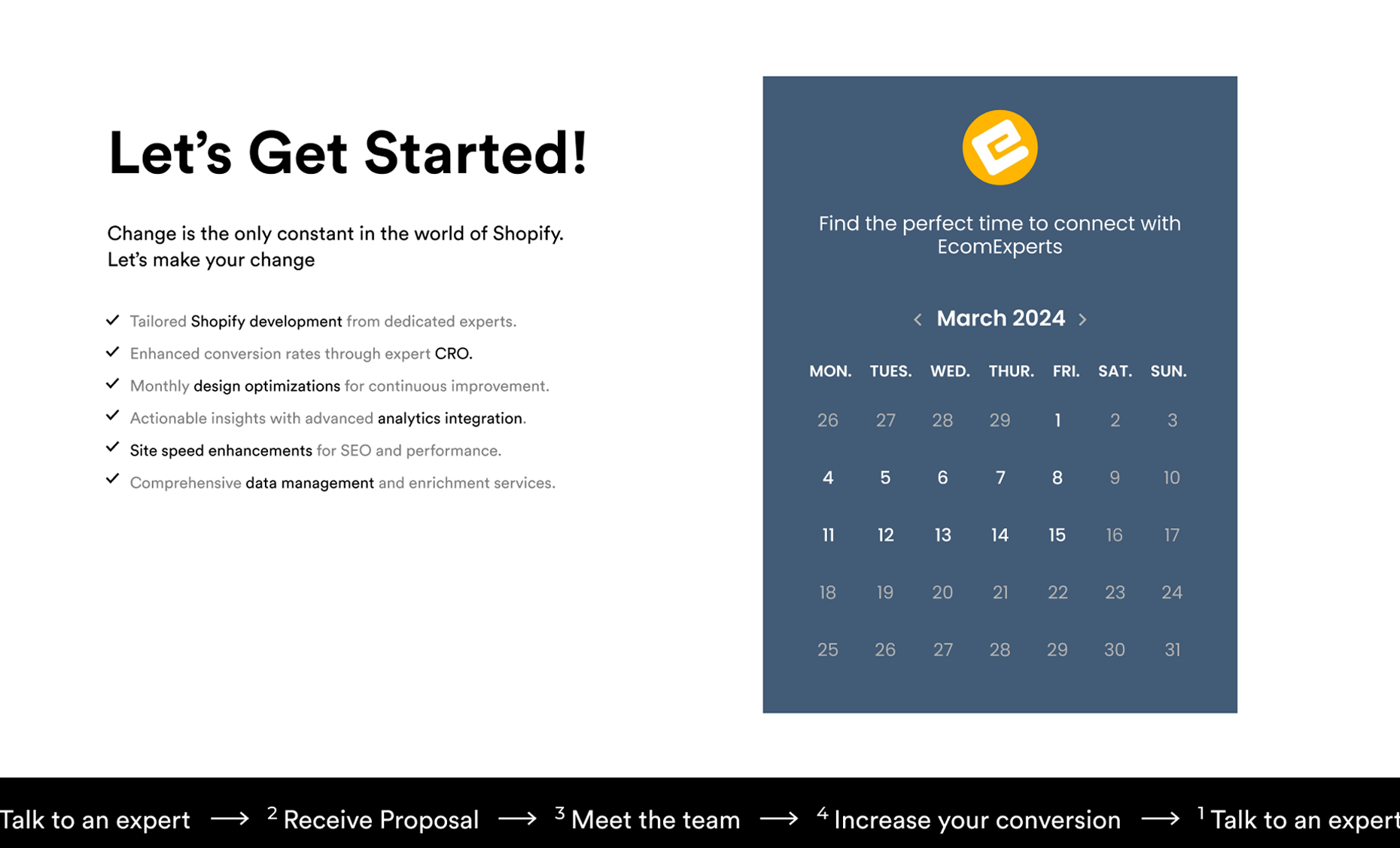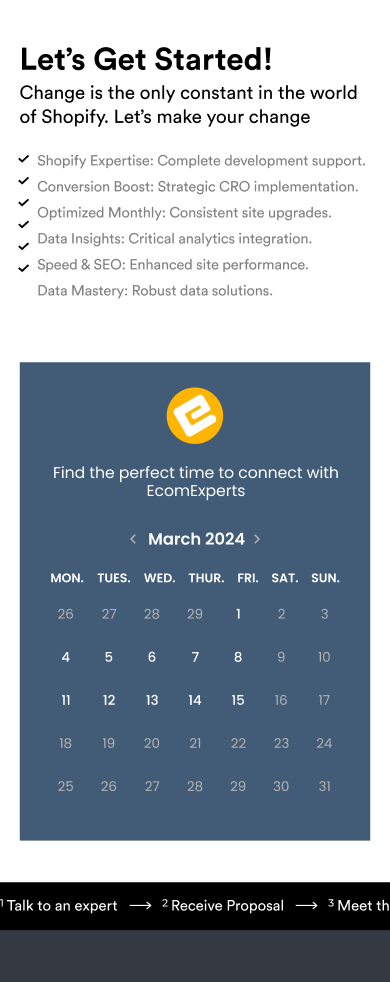
Unlock the power of Shopify for your B2B business with our comprehensive guide.
In today's digital age, having an e-commerce platform is essential for B2B businesses to thrive. One of the leading platforms in the market is Shopify, which offers a range of features and capabilities specifically tailored for B2B operations. In this guide, we will explore everything you need to know about using Shopify for B2B business success, from understanding its capabilities to optimizing your store and integrating third-party apps.
Understanding Shopify and its B2B Capabilities
What is Shopify?
Shopify is a popular e-commerce platform that enables businesses to create and manage their online stores. It provides a user-friendly interface, robust features, and seamless integrations, making it an ideal choice for B2B businesses looking to establish their online presence.
Moreover, Shopify offers a wide range of customizable templates and themes, allowing businesses to create a unique and visually appealing online store that aligns with their brand identity. The platform also supports various payment gateways, making it convenient for B2B businesses to accept payments from customers worldwide.
Benefits of Using Shopify for B2B Business
There are several advantages to using Shopify for your B2B business. Firstly, Shopify offers scalability, allowing your store to grow alongside your business. It also provides a secure platform with built-in PCI compliance, ensuring that your customers' sensitive information is protected. Additionally, Shopify offers responsive customer support and an extensive library of resources, making it easier for you to navigate the platform and resolve any issues that may arise.
Furthermore, Shopify's robust analytics tools provide valuable insights into your B2B business's performance, helping you make informed decisions to optimize your online store and drive sales. The platform also supports integrations with various third-party apps and services, enabling B2B businesses to streamline their operations and enhance their overall efficiency.
Setting Up Your B2B Shopify Store
Choosing the Right Shopify Plan
When setting up your B2B Shopify store, it's important to choose the right plan that suits your business needs. Shopify offers various plans, ranging from Basic to Advanced, each with different features and pricing tiers. Consider factors such as the number of products you plan to sell and the level of customization required for your store.

Furthermore, it's essential to think about the scalability of your business. As your B2B store grows, you may need access to advanced features such as real-time carrier shipping and advanced report builders. By selecting a plan that aligns with your long-term goals, you can ensure seamless growth and expansion for your online store.
Customizing Your Shopify Store for B2B
Customization plays a vital role in creating a unique brand experience for your B2B customers. Shopify offers a wide range of themes and templates that can be customized to reflect your brand's identity. You can also leverage Shopify's robust editing tools to modify the layout, colors, and typography of your store, ensuring a cohesive and professional look.
Moreover, personalization is key in the B2B sector. Consider tailoring your store's user experience to meet the specific needs of your business clients. This could involve creating custom pricing tiers, implementing a streamlined ordering process, or offering personalized product recommendations based on previous purchases. By focusing on customization and personalization, you can enhance customer satisfaction and loyalty within your B2B Shopify store.
Key Features of Shopify for B2B Business
Wholesale Channel
The Wholesale Channel is a powerful feature provided by Shopify, specifically designed for B2B operations. It allows you to create a separate storefront exclusively for B2B customers, complete with personalized pricing, minimum order quantities, and tiered discount structures. This ensures that your B2B customers have a seamless and tailored shopping experience.
Moreover, the Wholesale Channel on Shopify offers advanced customization options, allowing you to set up unique shipping methods, payment terms, and product visibility for your B2B clients. By tailoring every aspect of their purchasing journey, you can strengthen relationships with your wholesale customers and increase their loyalty to your brand.
Customer Segmentation
Segmenting your customers enables you to personalize marketing efforts and provide targeted offers. Shopify offers built-in customer segmentation tools that allow you to categorize your customers based on various criteria such as purchase history, location, and engagement. By understanding your customers better, you can tailor your marketing strategies and cater to their specific needs.
Furthermore, Shopify's customer segmentation feature goes beyond just categorizing customers; it also provides detailed analytics and insights into each customer segment's behavior and preferences. This data empowers you to create highly personalized marketing campaigns, recommend relevant products, and ultimately drive more sales from your B2B clientele.
Bulk Order Management
Efficiently managing bulk orders is critical for B2B businesses. Shopify simplifies this process with its Bulk Order Management feature. This feature enables you to create custom price lists, handle bulk ordering easily, and provide a seamless experience for your B2B customers. By streamlining the ordering process, you can save time and enhance customer satisfaction.
In addition, Shopify's Bulk Order Management tool integrates with inventory management systems, allowing you to track stock levels in real-time and prevent overselling or stockouts. This synchronization ensures that your B2B customers always have access to the products they need, enhancing their overall experience and fostering long-term partnerships with your business.
Optimizing Your B2B Shopify Store
SEO Best Practices for Shopify
To drive organic traffic to your B2B Shopify store, it's crucial to optimize it for search engines. Shopify provides several SEO tools and features, including customizable meta tags, page titles, and URLs. Additionally, you can optimize your product descriptions with relevant keywords, create unique and informative content, and leverage backlinking strategies to enhance your search engine visibility.

When it comes to SEO best practices for Shopify, it's also important to focus on image optimization. High-quality images not only enhance the visual appeal of your store but also play a role in SEO. By using descriptive file names and alt text for your product images, you can improve your store's visibility in image searches, driving more traffic to your site. Furthermore, optimizing image sizes to ensure fast loading times can positively impact your SEO performance.
Mobile Optimization for B2B Buyers
In today's mobile-driven world, it's essential to optimize your B2B store for mobile devices. Shopify offers responsive themes and a mobile-friendly checkout process, ensuring a seamless experience for your B2B buyers on smartphones and tablets. Mobile optimization can lead to increased conversions and customer satisfaction, as more and more buyers prefer to make purchases on their mobile devices.
Aside from responsive design and mobile-friendly features, consider implementing progressive web apps (PWAs) for your B2B Shopify store. PWAs combine the best of web and mobile apps, providing a fast and engaging user experience similar to that of a native app. By enabling offline access, push notifications, and smooth navigation, PWAs can further enhance the mobile shopping experience for your B2B buyers, boosting customer retention and loyalty.
Integrating Third-Party Apps with Shopify
Top Shopify Apps for B2B Business
One of the greatest advantages of using Shopify is its ability to integrate with a wide range of third-party apps. These apps provide additional functionality and features to enhance your B2B store. Some popular apps for B2B businesses include inventory management apps, email marketing tools, and customer relationship management (CRM) systems. Research, select, and integrate the apps that best align with your business requirements.

When it comes to B2B businesses, having the right tools at your disposal can make a significant difference in your operations. Inventory management apps can help you keep track of stock levels, streamline order fulfillment, and prevent stockouts. Email marketing tools enable you to engage with your B2B customers effectively, nurturing leads and driving conversions. Additionally, CRM systems allow you to manage customer relationships more efficiently, leading to improved customer satisfaction and retention.
How to Integrate Apps with Shopify
Integrating third-party apps with Shopify is a straightforward process. Shopify's App Store offers a vast selection of apps that can be easily installed and configured for your store. Simply browse the available apps, read reviews and ratings, and select the ones that meet your specific needs. Once installed, follow the app's instructions to integrate it with your Shopify store and make the most of its features.
Furthermore, staying updated with the latest trends and technologies in the B2B e-commerce space is crucial for the growth and success of your business. By continuously exploring new apps and integrations, you can stay ahead of the competition and provide a seamless shopping experience for your B2B customers. Remember, the key to successful integration is to choose apps that complement your existing processes and add value to your overall business strategy.
By understanding Shopify and leveraging its B2B capabilities, you can take your B2B business to new heights. From setting up your store to optimizing it for maximum visibility, Shopify provides the tools and features necessary for success. Additionally, integrating third-party apps can streamline various aspects of your business operations and enhance the overall customer experience. Embrace Shopify as your B2B e-commerce platform and unlock the full potential of your business.


